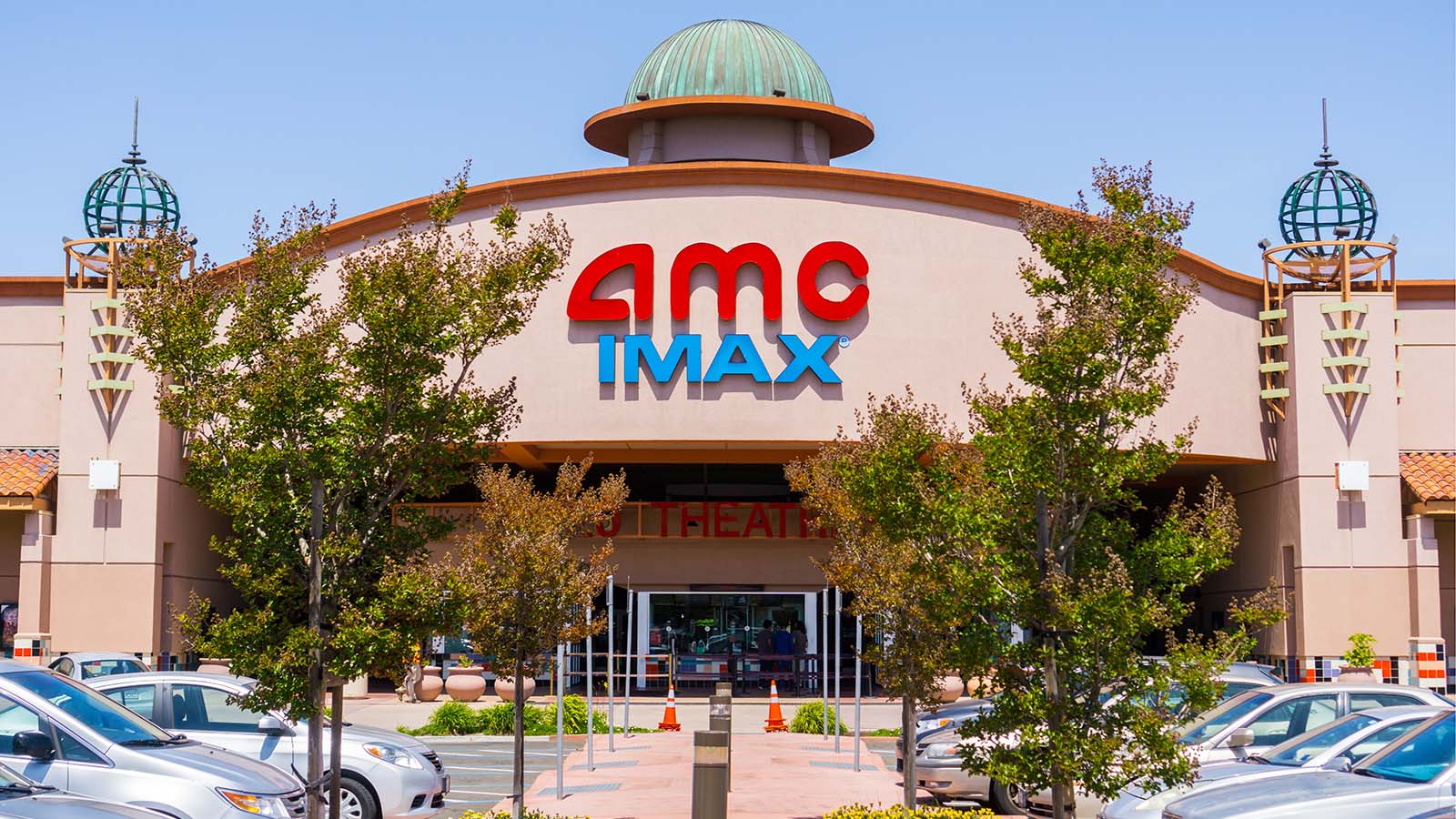AMC Entertainment Holdings Inc (NYSE:AMC) has been at the center of two of the biggest stock market stories in decades. The pandemic resulted in moviegoers avoiding theaters. At the same time, it disrupted the dynamics of the movie business, seeing streaming video services get early access to blockbuster films. As a result, AMC stock lost 71% of its value in 2020. AMC was also in headlines several weeks ago, when it became the latest stock to be targeted in Reddit. That coordinated effort to hit short-traders saw AMC stock pop over 300% in one day.

AMC stock quickly gave back most of those Reddit gains, but its current $5.65 is still up well over 160% since the start of the year. Is this an opportunity to pick up shares in a company that’s on the road to recovery in a post-pandemic world?
The Reddit Effect Wears Off
In mid-January, AMC stock posted a sizeable gain on news the company issued a $100 million debt offering. The money gave AMC more buffer to continue operating while hoping for the pandemic to recede and theaters to fill back up.
The company had previously reported it was burning through cash in October and November at the rate of $125 million per month. It warned about running out of cash in January, and noted it had “substantial doubt” about its future. The debt offering takes some pressure off, but comes at a high cost with a 15% interest rate.
The big news for AMC stock in 2021 has been the Reddit effect. Traders following Reddit’s WallStreetBets forum used platforms like Robinhood to buy AMC shares. The resulting frenzy is what led to that 300% pop in a single session on Jan. 26.
AMC took advantage of that temporary boost to raise an additional $304.8 million by selling more shares.
Reality Check: The Lasting Impact of the Pandemic
The biggest challenge facing AMC and other movie chains is the pandemic has accelerated the streaming effect. Consumers have been streaming more than ever, to the point that streaming companies had to cut quality early in the pandemic to avoid choking the internet. Media companies are increasingly reliant on their streaming services for revenue growth. Those also owning movie studios have leveraged that during the pandemic to release movies directly to streaming, or streaming simultaneously with theater releases.
Many people have discovered that paying a steep rental fee for a movie over a streaming service is far cheaper and more convenient than driving to a theater, parking, paying for multiple tickets, paying hyper-inflated prices for snacks, sitting through pre-movie ads, and having to put up with crowds — all while being told to keep quiet and keep their smartphone off.
This challenge is a big part of the reason why AMC stock was already in free fall (down about 78% between December 2016 and December 2019) before the pandemic.
As Wheeler Winston Dixon, professor emeritus of film studies at the University of Nebraska-Lincoln, recently told the Los Angeles Times:
“We were already going to an online culture, but the pandemic has pushed it over the edge.”
Bottom Line on AMC Stock
It’s possible that when the pandemic and its lingering effects are finally behind us, the movie industry will also return to normal.
Possible, but by no means certain. I suspect there may be a rush to get back into theaters to see a movie on the big screen. But will that nostalgia last? After all, audiences have become pretty comfortable with the convenience of watching a blockbuster movie at home on a streaming service.
After the Reddit effect has largely worn off, AMC stock has once again dropped well below its December 2019 levels. However, nothing has changed in terms of the business challenges that dropped it that low — challenges that had AMC shares sliding steeply since 2016.
If anything, the situation today is even more challenging. Compared to 2019, AMC now has additional debt to deal with, plus streaming services and movie studios have established tighter integration.
It may stabilize, but nothing about AMC stock suggests growth opportunity to me.
On the date of publication, neither Louis Navellier nor the InvestorPlace Research Staff member primarily responsible for this article held (either directly or indirectly) any positions in the securities mentioned in this article.
Louis Navellier had an unconventional start, as a grad student who accidentally built a market-beating stock system — with returns rivaling even Warren Buffett. In his latest feat, Louis discovered the “Master Key” to profiting from the biggest tech revolution of this (or any) generation.
